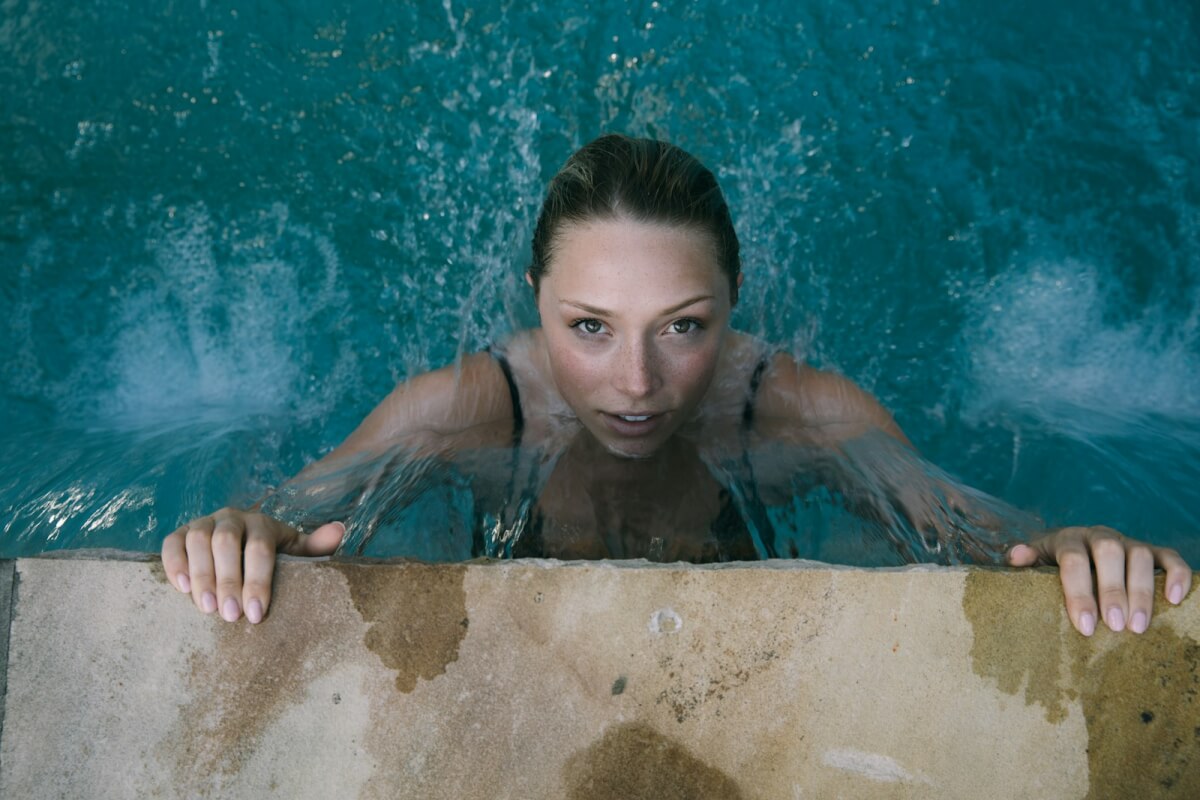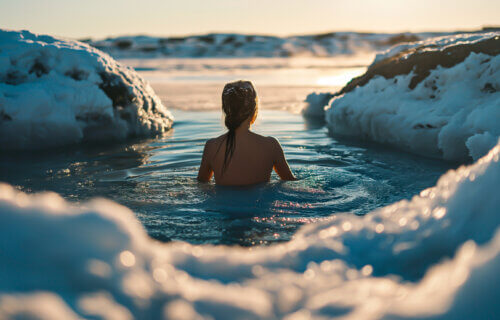LONDON — Swimming in cold water promotes less intense hot flashes among menopausal women, according to researchers from University College London. Their study finds that women who adopted a regular habit of cold water swimming reported significant improvements in their physical and mental symptoms during menopause. More specifically, menopausal women noted significant improvements in anxiety (reported by 46.9% of participants), mood swings (34.5%), low mood (31.1%), and hot flashes (30.3%) after taking up cold swimming.
In all, this project included 1,114 women, 785 diagnosed with menopause. Most women (63.3%) began swimming in the cold specifically to relieve their symptoms.
Some women told the researchers they found the cold water to be “an immediate stress/ anxiety reliever,” describing the activity as “healing.”
“Cold water is phenomenal. It has saved my life. In the water, I can do anything. All symptoms (physical and mental) disappear and I feel like me at my best,” one 57-year-old participant said.
“Cold water has previously been found to improve mood and reduce stress in outdoor swimmers, and ice baths have long been used to aid athletes’ muscle repair and recovery,” says senior study author Professor Joyce Harper (UCL EGA Institute for Women’s Health) in a university release. “Our study supports these claims, meanwhile the anecdotal evidence also highlights how the activity can be used by women to alleviate physical symptoms, such as hot flushes, aches and pains.”
“More research still needs to be done into the frequency, duration, temperature and exposure needed to elicit a reduction in symptoms. However, we hope our findings may provide an alternative solution for women struggling with the menopause and encourage more women to take part in sports.”

Most of the women involved in this study said they would be likely to swim during both the summer and winter and wear swimming costumes as opposed to wet suits. Besides aiming to relieve menopausal symptoms, participants said their main motivations for cold water swimming include being outside, improving mental health, and exercising.
“The majority of women swim to relieve symptoms such as anxiety, mood swings and hot flushes. They felt that their symptoms were helped by the physical and mental effects of the cold water, which was more pronounced when it was colder,” Prof. Harper explains
“How often they swam, how long for and what they wore were also important. Those that swam for longer had more pronounced effects. The great thing about cold water swimming is it gets people exercising in nature, and often with friends, which can build a great community.”
The study authors also investigated if cold water swimming could help improve women’s menstrual symptoms. Among the 711 females dealing with menstrual symptoms, nearly half said that cold water swimming did help ease their anxiety (46.7%). Another third reported it helped with mood swings (37.7%) and irritability (37.6%). However, despite all of the benefits tied to cold water swimming, researchers also stress there are very real risks involved.
“Caution must be taken when cold water swimming, as participants could put themselves at risk of hypothermia, cold water shock, cardiac rhythm disturbances or even drowning,” Prof. Harper concludes.
“Depending on where they are swimming, water quality standards may also vary. Raw sewage pollution is an increasingly common concern in UK rivers and seas. And, sadly, this can increase the likelihood of gastroenteritis and other infections.”
It’s important to note that this project may have some bias due to the poll only being completed by women who already started swimming in cold water. Additionally, since the research was held online, study authors say it is likely women were more likely to complete the survey if they already noticed an association between their menopause symptoms and cold water swimming.
The study is published in the journal Post Reproductive Health.
